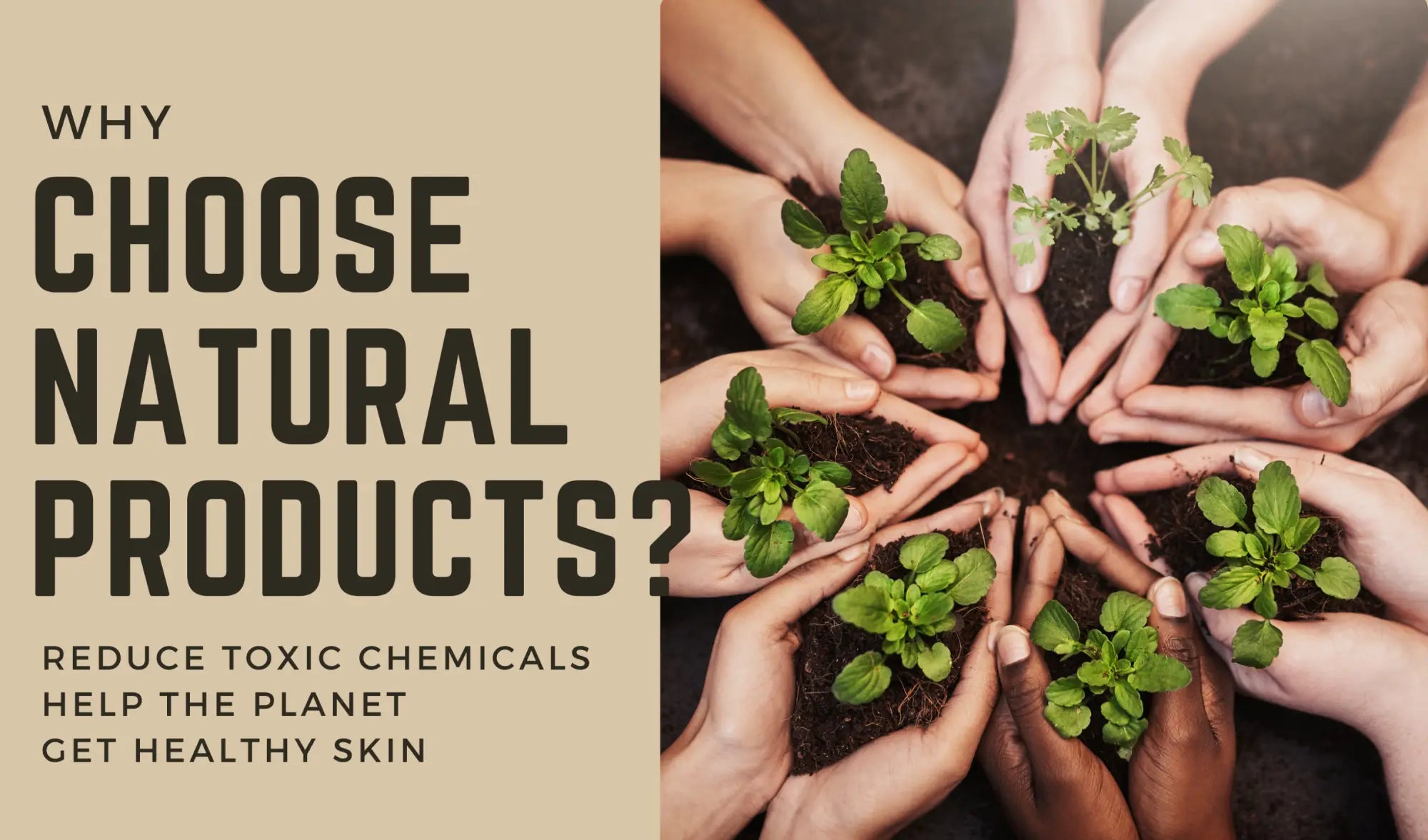When it comes to makeup, most of us want to look our best without compromising our skin’s health. That’s why the debate between organic and non-organic makeup continues to captivate beauty enthusiasts worldwide. But what’s the skin-deep truth? Here we divide it into the topic, exploring why organic makeup benefits take the crown over its non-organic counterparts.
The benefits of Organic makeup are that it is crafted from natural ingredients, and carefully selected to nourish and protect the skin. Free from harmful synthetic chemicals and additives, it reduces the risk of skin irritation, breakouts, and long-term damage. On the other hand, non-organic makeup often contains harsh chemicals that can clog pores, disrupt the skin’s natural balance, and even exacerbate existing skin conditions.
Aside from its skin-friendly nature, organic makeup boasts another advantage – environmental sustainability. Using organic makeup, you support eco-conscious brands prioritizing sustainability and ethical practices.
So, whether you’re a makeup enthusiast or looking to make healthier choices for your skin. This article will explore the compelling reasons why organic makeup reigns supreme. Get ready to uncover the secrets to achieving a flawless, radiant complexion while keeping your skin and the planet safe.
Understanding Organic Makeup
Organic makeup is formulated with ingredients sourced from natural origins, meaning they are derived from plants, minerals, and other organic materials. These products are often free from synthetic chemicals, preservatives, and artificial fragrances, which can be harmful to the skin. The goal of organic makeup is to enhance beauty while nourishing the skin, making it a preferred choice for those who prioritize health and wellness in their beauty routines. By using ingredients that are grown without pesticides or genetically modified organisms (GMOs). Organic makeup adheres to a philosophy that values purity and sustainability.
The certification of organic makeup can vary by region, but it usually involves rigorous standards set by regulatory bodies. These certifications ensure that the products meet specific criteria concerning ingredient sourcing and processing methods. For instance, in the United States, the USDA Organic label indicates that a product contains at least 95% organic ingredients. This level of transparency is appealing to consumers, as it provides assurance about what they are putting on their skin. Additionally, many organic brands prioritize ethical sourcing. Ensuring that their ingredients are harvested in ways that benefit local communities and ecosystems.
Moreover, organic makeup often includes beneficial properties that contribute positively to skin health. Ingredients like jojoba oil, shea butter, and natural minerals not only provide coverage but also hydrate, soothe, and protect the skin. This multifaceted approach to beauty aligns with a broader understanding of skincare, where the goal extends beyond mere aesthetics to include overall skin wellness. By choosing organic makeup, consumers invest in products that reflect their values and promote a healthier lifestyle.

The Harmful Effects of Non-Organic Makeup on the Skin
Non-organic makeup products are often laden with synthetic chemicals, preservatives, and fragrances that can wreak havoc on the skin. Many conventional cosmetics contain ingredients like parabens, sulfates, and phthalates, which are known to disrupt hormonal balance and may lead to various skin issues. These substances can cause irritation, allergic reactions, and even long-term damage to the skin’s protective barrier. For individuals with sensitive skin or conditions such as eczema or rosacea, using non-organic makeup can exacerbate symptoms, leading to redness, inflammation, and discomfort.
Furthermore, non-organic makeup often includes fillers and binders that can clog pores, resulting in breakouts and dull skin. Many of these products are designed to provide a long-lasting finish but at a cost to skin health. The accumulation of heavy layers of makeup can lead to a cycle of skin problems, where the makeup intended to enhance beauty ultimately contributes to its deterioration. This can create a frustrating scenario for makeup wearers who find themselves trapped in a cycle of trying to cover up blemishes rather than treating the underlying issues.
In addition to immediate skin concerns, the long-term effects of using non-organic makeup can be concerning. Continuous exposure to harmful chemicals may lead to premature aging, skin discoloration, and an overall compromised skin texture. Studies have indicated that certain ingredients commonly found in non-organic products can penetrate the skin and enter the bloodstream, raising concerns about their potential systemic effects. As awareness of these risks grows, many consumers are seeking to make informed choices about the products they use daily.
Benefits of Using Sustainable Makeup
The primary benefit of using organic makeup is the assurance that the ingredients are derived from natural sources, making them less likely to irritate the skin. Organic makeup often contains nourishing elements such as vitamins, antioxidants, and essential fatty acids that can improve skin health over time. For instance, organic ingredients like coconut oil and argan oil are known for their moisturizing properties, which help maintain hydration and elasticity in the skin. This contrasts sharply with the drying effects often associated with synthetic ingredients in conventional cosmetics.
Another significant advantage of organic makeup is its environmentally friendly nature. Many organic brands prioritize sustainable practices, using eco-conscious packaging and supporting fair trade initiatives. By choosing organic products, consumers contribute to a market that values sustainability and ethical sourcing, which can lead to a positive impact on the environment. Moreover, organic farming practices promote biodiversity and soil health, reducing the harmful effects of chemical runoff on ecosystems.
Additionally, organic makeup often comes with fewer allergens and irritants, making it suitable for a broader range of skin types. Many organic brands formulate their products with sensitive skin in mind, ensuring that even those prone to reactions can enjoy makeup without fear. This inclusivity is a significant selling point for organic cosmetics, as it allows individuals to feel confident in their choices. Ultimately, the myriad benefits of organic makeup not only enhance beauty but also promote a healthier lifestyle and a more sustainable future.

Common Misconceptions About Organic Makeup
Despite the growing popularity of organic makeup, several misconceptions persist that can deter consumers from making the switch. One of the most common myths is that organic makeup lacks performance compared to non-organic alternatives. Many believe that organic products do not provide the same level of coverage or longevity, leading them to think they must sacrifice quality for safety. However, recent advancements in formulation technology have proven that organic makeup can perform just as well, if not better, than conventional products. Many organic brands have developed innovative formulations that offer excellent coverage and wear time while remaining skin-friendly.
Another misconception is the idea that organic makeup is significantly more expensive than non-organic options. While it is true that some organic brands may carry a higher price tag, many affordable options are available that do not compromise on quality. The initial investment in organic makeup may seem higher, but the long-term benefits to skin health and the environment can outweigh the cost. Additionally, consumers are increasingly willing to invest in products that align with their values, particularly when it comes to health and sustainability.
Lastly, some individuals believe that organic makeup cannot be trendy or diverse in its offerings. This misconception underestimates the creativity and innovation present in the organic beauty industry. Today, there is an extensive range of organic makeup products available, from vibrant lip colors to versatile foundations, catering to various skin tones and preferences. The organic makeup market is continually evolving, with brands launching new products that appeal to modern beauty enthusiasts. By debunking these myths, more individuals can feel empowered to explore the world of organic makeup and embrace its advantages.
How to Choose the Right Non-toxic Makeup Products
Selecting the right benefits of organic makeup products can feel overwhelming, given the vast array of options available. The first step is to familiarize yourself with ingredient labels. Look for products that are certified organic, as this ensures that they meet specific standards for organic content. Ingredients should be listed, allowing consumers to make informed decisions. Familiarizing yourself with common organic ingredients can also help you identify products that cater to your skin’s needs. For instance, if you have dry skin, look for products containing hydrating ingredients like aloe vera and hyaluronic acid.
Another essential factor to consider is your skin type. Just as with non-organic makeup, finding products that match your skin type is critical for achieving the best results. For oily skin, lightweight, oil-free formulations may work best, while those with dry skin might benefit from cream-based products that provide extra hydration. Understanding your unique skin characteristics can guide you toward products that will offer the most benefit and minimize any potential irritation.
Lastly, consider the brand’s ethos and commitment to sustainability. Research the company’s practices regarding sourcing, production, and packaging. Many organic brands prioritize eco-friendly materials and fair trade practices, which can significantly impact your purchasing decision. Supporting brands that align with your values not only promotes healthier choices for your skin but also contributes to a more sustainable beauty industry. By taking these factors into account, you can confidently choose organic makeup products that enhance your beauty routine while being kind to your skin and the planet.
Tips for Transitioning to Organic Makeup
Transitioning to organic makeup can be a rewarding journey that enhances both your beauty routine and overall health. Start by gradually replacing your existing non-organic products with organic alternatives. This method allows you to evaluate how different products work for your skin without feeling overwhelmed. Begin with essential items like foundation or concealer, as these are often the most impactful on your overall look. Once you feel comfortable, you can expand your collection to include eyeshadows, blush, and other cosmetics.
Another helpful tip is to conduct patch tests when trying new organic products. Even though organic ingredients are generally gentler on the skin, some individuals may still experience sensitivities. Applying a small amount of the product to a discreet area of skin can help you determine if it’s suitable for your complexion. This practice is especially important for those with a history of allergies or sensitive skin. Ensuring that you can enjoy the benefits of organic makeup without adverse reactions.
Additionally, consider adopting a minimalistic approach during your transition. Instead of replacing every product at once, focus on the essentials and gradually build a curated collection of organic makeup. This strategy not only allows you to discover your preferences but also minimizes waste. By embracing a more intentional approach to beauty, you can make choices that align with your values and support a healthier lifestyle. With patience and exploration, transitioning to organic makeup can lead to a fulfilling and skin-friendly beauty routine.

Natural Cosmetics Brands Worth Exploring
With the increasing popularity of the benefits of organic makeup, numerous brands have emerged, each offering a unique take on beauty. One standout brand is RMS Beauty, known for its commitment to using raw, food-grade ingredients. RMS offers a range of products, from their iconic “Un” Cover-Up to vibrant lip and cheek colors. Their formulations are designed to enhance natural beauty while nourishing the skin, making them a favorite among organic makeup enthusiasts.
Another noteworthy brand is 100% Pure, which prides itself on offering products made from pure, organic ingredients. With a focus on fruit pigments and plant-based formulations, 100% Pure provides a wide variety of makeup options, including foundations, eyeliners, and mascaras. Their commitment to sustainability is evident in their eco-friendly packaging and cruelty-free practices, appealing to conscientious consumers.
Lastly, ILIA Beauty has gained recognition for its innovative approach to organic makeup. Blending skincare benefits with cosmetic performance, ILIA’s products are formulated with clean ingredients that promote healthy skin. Their multi-tasking products, such as tinted moisturizers and creamy blushes, cater to individuals seeking versatility and convenience in their beauty routines. Each of these brands exemplifies the quality and effectiveness that organic makeup can offer, making them excellent options for anyone looking to make the switch to a healthier beauty regimen.
DIY Organic Makeup Recipes
Creating your organic makeup at home can be a fun and rewarding experience. With a few simple ingredients, you can craft personalized cosmetics tailored to your preferences. For instance, a basic organic lip balm can be made by combining beeswax, coconut oil, and a few drops of essential oil for flavor. Melt the beeswax and coconut oil together, pour the mixture into a small container, and allow it to harden. This DIY lip balm not only hydrates your lips but also avoids the harmful chemicals often found in store-bought options.
Another easy DIY recipe is for an organic blush using natural pigments. To create a simple blush, mix arrowroot powder with a small amount of beetroot powder for color. Adjust the ratio to achieve your desired shade. Adding a few drops of essential oil can enhance the scent, making your blush both functional and enjoyable to use. This customizable approach allows you to experiment with colors, ensuring you find the perfect hue for your complexion.
Lastly, consider making an organic eyeshadow using natural clays and mineral pigments. Combine arrowroot powder with mica powder in your desired shade, and add a few drops of coconut oil to create a creamier texture. This DIY method allows for creativity and personalization while ensuring you avoid synthetic dyes and chemicals. By embracing DIY organic makeup, you not only save money but also gain control over the ingredients you put on your skin.

The Future of Organic Makeup
The future of organic makeup looks promising as consumers increasingly prioritize health, sustainability, and ethical practices in their beauty choices. As awareness of the harmful effects of synthetic ingredients grows, more brands are responding by reformulating their products to align with organic standards. This shift reflects a broader trend toward clean beauty, where transparency and ingredient integrity take center stage. With advancements in formulation technology, the benefits of organic makeup are set to become even more effective, rivaling conventional products in performance and appeal.
Moreover, the rise of eco-conscious consumers is encouraging brands to adopt more sustainable practices. From eco-friendly packaging to responsible sourcing, the beauty industry is evolving to meet the demands of environmentally aware shoppers. This shift not only benefits the planet but also fosters a culture of accountability and responsibility within the industry. As consumers continue to advocate for cleaner, safer products. Brands will be compelled to innovate and adapt, ensuring that organic makeup remains at the forefront of the beauty conversation.
In addition to these changes, the future of organic makeup may also see a surge in inclusivity and diversity. The industry recognizes the importance of catering to various skin tones and types. Organic brands are likely to expand their offerings to ensure that everyone can find products that work for them. This commitment to inclusivity reflects a broader societal shift toward representation and acknowledgment of diverse beauty standards. As we move forward, the organic makeup sector will play a pivotal role in shaping a healthier, more sustainable, and inclusive beauty landscape.
Conclusion
Embracing organic makeup is a decision that aligns beauty with health and sustainability. By choosing products made from natural ingredients, consumers can nourish their skin while minimizing the risk of irritation and long-term damage. The benefits of organic makeup extend beyond individual skin health. They contribute to a larger movement toward environmentally friendly practices and ethical sourcing. With a wealth of options available, making the switch has never been more accessible or appealing.
As the beauty industry evolves, organic makeup offers a solution that prioritizes the well-being of both consumers and the planet. By debunking common misconceptions and understanding how to choose the right products, individuals can confidently explore the world of organic cosmetics. The emergence of innovative brands and DIY options further empowers consumers to take control of their beauty routines. Ensuring that they can make choices that align with their values. Ultimately, the journey toward organic makeup is not just about enhancing one’s appearance. It’s about fostering a holistic approach to beauty that prioritizes health, sustainability, and inclusivity. As more individuals recognize the importance of what they put on their skin and the impact of their choices. The organic makeup movement will continue to flourish, paving the way for a healthier and more beautiful future.






One comment
[…] As consumers become increasingly conscious of what they consume and its environmental impact, organic plant-based alternatives are, therefore, revolutionizing the food, beauty, and wellness industries. These products not only […]